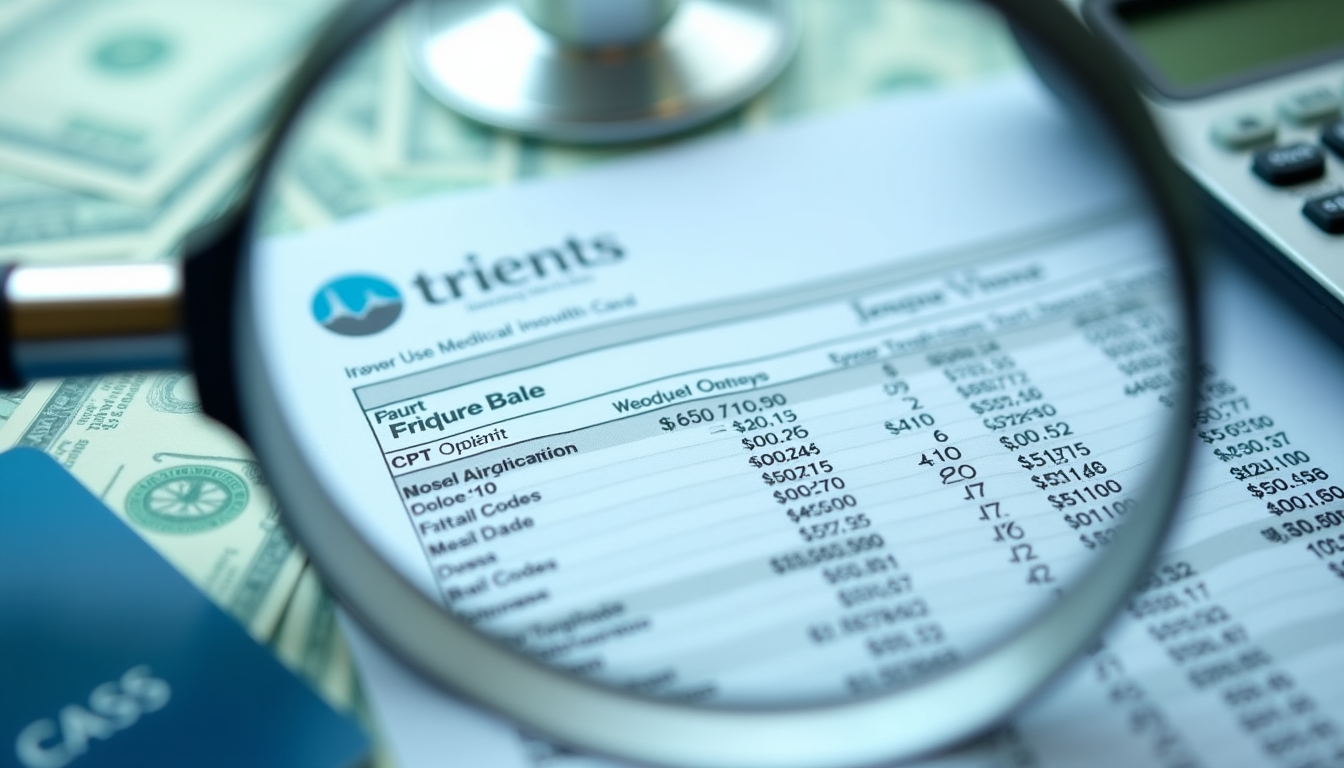Understanding the No Surprises Act: Your Guide to Avoiding Unexpected Medical Bills
"Financial fear should never stand between someone and their healing."
As a mental health advocate and former clinical social worker, I’ve sat with countless patients paralyzed by unexpected medical bills. The panic in their voices when describing a $2,000 bill from an out-of-network anesthesiologist during a psychiatric hospitalization. The shame of delaying therapy because an insurance denial left them drowning in debt. These stories fuel my mission to help patients navigate our complex healthcare system—and why the No Surprises Act (NSA) is one of the most significant patient protections in decades.
In this guide, we’ll break down what the NSA means for you, where gaps remain, and how to advocate for yourself when bills feel overwhelming.
What Is the No Surprises Act?
Enacted in 2022, the NSA protects patients from surprise medical bills—unexpected charges that arise when you unknowingly receive care from out-of-network providers. This commonly happens in emergencies or during hospital stays where specialists (e.g., radiologists, anesthesiologists) aren’t in your insurance network[1].
Key Protections
- Emergency care: Pay only in-network costs, even at out-of-network ERs[2]
- Non-emergency hospital care: In-network cost-sharing applies to all services at in-network facilities[3]
- Air ambulance billing: Protections now limit out-of-network charges[2]
- Good Faith Estimates (GFEs): Uninsured patients can request upfront cost estimates and dispute bills exceeding estimates by $400+[4]
Real-World Example: Maria, a college student, went to an in-network hospital for emergency surgery. Weeks later, she received a $3,800 bill from an out-of-network surgeon. Under the NSA, Maria only owed her $300 ER copay. The hospital resolved the balance with her insurer[3].
The NSA’s Impact: By the Numbers
| Statistic | Impact | Source |
|---|---|---|
| 10 million Americans | Owe >$1,000 in medical debt | [5] |
| $1 billion/year | Saved through avoided surprise bills | [3] |
| 77% | Provider win rate in payment disputes | [6] |
| 30% | Reduction in billing surprises for uninsured patients using GFEs | [4] |
While progress is clear, challenges remain:
- 27% of insured adults still receive unexpected bills, often due to unclear NSA explanations[7]
- Rural patients face double the out-of-network risks for services like anesthesia[5]
4 Common Scenarios Where the NSA Protects You
1. Emergency Room Visits
Before NSA: A car accident victim treated at an out-of-network ER could owe thousands in "balance bills."
Now: You pay only your in-network deductible and copay[2].
2. Scheduled Surgeries
The Trap: Your in-network surgeon uses an out-of-network assistant.
NSA Safeguard: All providers at in-network facilities must bill as in-network. Always verify this in writing beforehand[5].
3. Mental Health Crises
Reality Check: 1 in 5 psychiatric hospitalizations led to surprise bills pre-NSA[3].
New Rule: Emergency mental health care (including substance use treatment) now falls under NSA protections.
4. Air Ambulance Transports
Shocking Stat: Median air ambulance bill was $30,000 pre-NSA[5].
Current Protection: You’re only responsible for in-network costs[2].
Where the NSA Falls Short
Coverage Gaps
- Ground ambulances: Excluded from NSA protections
- Non-hospital settings: Urgent care clinics may have loopholes
- Rural disparities: Fewer in-network specialists increase billing risks[5]
The Payment Dispute Problem
When providers and insurers disagree, an Independent Dispute Resolution (IDR) process decides the final amount. Providers won 77% of IDR cases in 2023, often securing payments 3.7x higher than Medicare rates[6]. This could drive up long-term costs.
Your Action Plan: How to Avoid & Fight Surprise Bills
Before Care
-
Ask 3 Questions:
- Is this facility in-network?
- Will all providers be in-network?
- Can I get this in writing?
-
Request a GFE if uninsured or paying cash[4].
-
Use NSA Scripts:
“I’m aware of my No Surprises Act rights. Can you confirm all providers are in-network?”
When Bills Arrive
-
Don’t Pay Immediately
- Errors occur in 80% of medical bills[3]
-
Dispute Illegitimate Charges
- Use templates from CMS.gov
-
File a Complaint
- CMS.gov/nosurprises or 1-800-985-3059
Pro Tip: If your bill exceeds a GFE by $400+, you’re entitled to a dispute resolution process[4].
The Road Ahead: Strengthening Protections
While the NSA has saved patients $8 billion annually[3], systemic fixes are needed:
- Standardize Laws: 20+ states have stricter rules than the NSA[6]
- Boost Rural Access: 20% of providers reduced rural services post-NSA[5]
- Expand AEOB: The delayed Advanced Explanation of Benefits (expected 2026) will show costs upfront[7]
Final Thoughts: Knowledge Is Power
The No Surprises Act isn’t perfect, but it’s a critical tool. As someone who’s fought for mental health parity, I’ve seen how financial stress worsens conditions like anxiety and depression. You deserve care without crippling debt.
Remember:
- Mental healthcare is essential healthcare
- Your rights don’t expire with the bill due date
- Help exists—from federal hotlines to advocacy groups
"Healing requires safety—financial and emotional. Never let an unexpected bill silence your pursuit of wellness."
References
[1] Centers for Medicare & Medicaid Services. (2022). No Surprises Act Overview. CMS.gov.
[2] Kaiser Family Foundation. (2021). Surprise Medical Bills: New Protections for Consumers. kff.org.
[3] Agency for Healthcare Research and Quality. (2023). Impact of the No Surprises Act. ahrq.gov.
[4] HealthCare.gov. (2023). Good Faith Estimates for Uninsured Patients. healthcare.gov.
[5] Health Affairs. (2022). Rural Healthcare Challenges Under the NSA. healthaffairs.org.
[6] JAMA Network. (2023). Payment Disputes and the IDR Process. jamanetwork.com.
[7] HHS.gov. (2023). Implementation of the No Surprises Act. hhs.gov.




